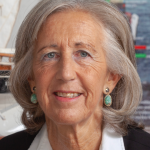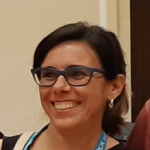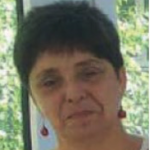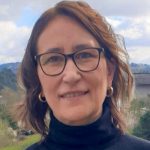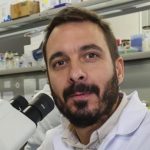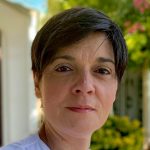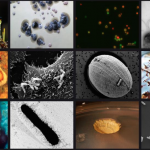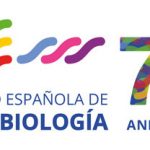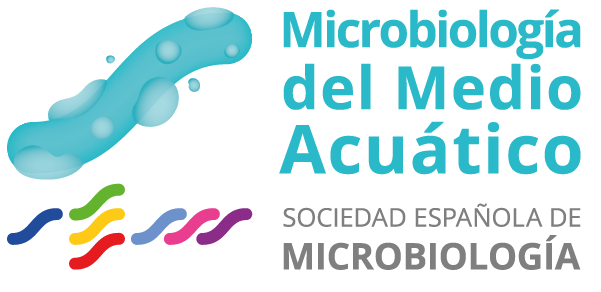
The Microbiology of the Aquatic Environment is a field in exponential growth at the international level. As it could not be less, the Spanish scientific and technical community that develops its work at the highest level in Universities, Research Centers and public and private companies, responded to this growing demand for studies in the field of Water Microbiology, creating in 1995 the Specialized Group of Microbiology of the Aquatic Environment (MMA) within the Spanish Society of Microbiology (SEM), with the aim of promoting the development of Microbiology of the aquatic environment in its basic and applied aspects, as well as strengthening collaboration and relationship between its members. Currently, the MMA Group has some 180 associates including biologists, pharmacists, chemists, veterinarians and doctors, whose work focuses on different thematic areas: microbial taxonomy and phylogeny, microbial physiology, microbial ecology, pathogenesis, contamination and methodology.
The Group meets periodically every two years to hold its Scientific Meetings and organizes round tables and symposia within the framework of the SEM National Congresses. It also awards biennially a research award for the best doctoral thesis in the specialty. The Group's Board of Directors is made up of a president, vice president, secretary, treasurer and four members, positions that are renewed every four years by vote of the members.
Currently, the Group also has the following Collaborating Entities: EMASA (Empresa Municipal Aguas de Málaga, S.A.), EMASESA (Metropolitan Water Supply and Sanitation Company of Seville) and IPROMA (Eurofins-IPROMA).
Currently the group's Board of Directors is made up of the following members:
Scientific Meetings
The Aquatic Environment Microbiology Group holds a Scientific Meeting every two years. The objective of these meetings is to be a meeting point and a forum for discussion between researchers and specialists, and to encourage the younger members, who are being trained in the different working groups, to participate actively, in order to stimulate our Group while gaining experience.
I Scientific Meeting. Torremolinos, April 12-14, 1996
II Scientific Meeting. Girona, May 29-31, 1998
III Scientific Meeting. Santiago de Compostela, May 14-16, 2000
IV Scientific Meeting. Seville, October 3-6, 2002
V Scientific Meeting. Tarragona, September 30 to October 2, 2004
VI Scientific Meeting. Valencia, September 28-30, 2006
VII Scientific Meeting. Bilbao, September 25-27, 2008. Summaries in pdf
VIII Scientific Meeting. Vigo, September 14-16, 2010. Summaries in pdf
IX Scientific Meeting. Barcelona, September 13-15, 2012. Summaries in pdf
X Scientific Meeting. Elche / Orihuela, September 7-9, 2014. Summaries in pdf
XI Scientific Meeting. Oviedo, July 20-22, 2016
XII Scientific Meeting. Sitges, October 1-2, 2018. Held jointly with the XVII Meeting of the Taxonomy, Phylogeny and Biodiversity Group.
XIII Scientific Meeting. Grenade. This meeting scheduled for October 2020 was postponed to September 22-23, 2022.
XIV Scientific Meeting. Alicante, September 12-13, 2024.
| Congress | Place and date | Moderator (s) | Speakers |
| XV NATIONAL CONGRESS OF MICROBIOLOGY | Madrid, 1995 | Juan Jose Borrego, Malaga University
Sara I. Pérez-Prieto, |
Isabel Barcina Lopez. Universidad del País Vasco. "Estrategias de supervivencia de las bacterias entéricas en los ecosistemas acuáticos"
Albert Bosch Navarro. Universidad de Barcelona. "Supervivencia de virus entéricos en el medio acuático" Isabel Esteve Martínez. Universidad Autónoma de Barcelona. "Mecanismos de resistencia (supervivencia) de poblaciones bacterianas de los tapetes microbianos del delta del Ebro" Esperanza Garay Aubán. Universidad de Valencia. “Distribución y ciclo anual de bacterias heterótrofas aerobias asociadas a ostras cultivadas en el Mar Mediterráneo" Alicia Estévez-Toranzo. Universidad de Santiago de Compostela. "El medio acuático como reservorio de microorganismos patógenos de importancia en acuicultura" |
| XVI NATIONAL CONGRESS OF MICROBIOLOGY | Barcelona, 1997 | Albert Bosch Navarro, University of Barcelona Alicia Estévez-Toranzo, |
David W Cubitt. Great Ormond St. Hospital for Children. London (UK). "Waterborne viral gastroenteritis"
Carles Abellá Ametller. Universidad de Girona. "Los productores primarios en ecosistemas acuáticos anaeróbicos" Anicet Blanch Gisbert. Universidad de Barcelona. "Utilización de probióticos en cultivos de peces marinos" Sara Isabel Pérez-Prieto. Centro de Investigaciones Biológicas. CSIC. "Características de Aquabirnavirus españoles" |
| XVII NATIONAL CONGRESS OF MICROBIOLOGY | Granada, 1999 | Esperanza Garay Aubán, University of Valencia |
Jesus L. Romalde. Universidad de Santiago de Compostela. "Incidencia de virus entéricos en moluscos: métodos de detección y situación en Galicia"
Antonio Ventosa. Universidad de Sevilla. "Ecología de ambientes acuáticos hipersalinos" Joan Jofre. Universidad de Barcelona. "Legislación, estandarización y control de calidad en Microbiología de Aguas" Juan Iriberri. Universidad del País Vasco. "Bacterias resistentes a la predación en sistemas acuáticos" Ramon Roselló. Max Plank Institute of Marine Microbiology, Bremen (Alemania). "Diversidad de la microbiota activa en sedimentos marinos" |
| XVIII NATIONAL CONGRESS OF MICROBIOLOGY | Alicante, 2001 | Isabel Barcina Lopez, University of the Basque Country | Rosa Maria Painted. Universidad de Barcelona. "Son los estudios de epidemiología molecular aplicables a la caracterización de los virus en el ambiente?"
Carles Pedrós-Alió. Institut de Ciéncies del Mar, CSIC, Barcelona. "Diversidad del picoplancton" Philippe Lebaron. ObservatorieOceanologique, Univ. Pierre et Marie Curie, Paris VI (Francia). "Applications of cytometry and molecular biology techniques in microbial ecology" Ricardo Amils. CBM-Universidad Autónoma de Madrid. "¿Quién ha dicho que los microorganismos eucarióticos no soportan condiciones extremas?" |
| XIX NATIONAL CONGRESS OF MICROBIOLOGY | Santiago de Compostela, 2003 | Juan Luis Barja Pérez, University of Santiago de Compostela
Maria Jose Figueras, Rovira i Virgili University |
Anna Maria Solanas Cánovas. Universidad de Barcelona. "Consorcios microbianos degradadores de hidrocarburos"
Francisco Torrella. Universidad de Murcia. "Eutrofización en medios acuáticos y respuesta poblacional de formas microbianas no eucarióticas dependientes de células procariotas: una visión comparativa de estrategias de vida basadas en la interacción celular directa entre microorganismos" Juan Iriberri. Universidad del País Vasco. "Estructura del bacterioplancton: situaciones de equilibrio y respuesta al enriquecimiento" Fernando Laborda. Universidad de Alcalá de Henares. "Biorremediación de hidrocarburos en el medio acuático" |
| XX NATIONAL CONGRESS OF MICROBIOLOGY | Cáceres, 2005 | Antonio Ventosa, Sevilla University
Maria Jesus Pujalte, University of Valencia |
Karsten Rings. Diversa Corporation (USA). "High throughput cultivation: a novel tool to access microbial diversity"
Anthony Verísimo. Universidade de Coimbra (Portugal). "Population Genetics of Legionella pneumophila in natural environments" Maria Jose Figueras. Universidad Rovira i Virgili. "Importancia sanitaria de Legionella, marco legislativo y situación en España" Carmen amaro, Universidad de Valencia. "Nuevas estrategias para el aislamiento e identificación del patógeno humano y de anguilas Vibrio vulnificus serovar E" |
| XXI NATIONAL CONGRESS OF MICROBIOLOGY | Sevilla, 2007 | Francisco Lucena, University of Barcelona | Charles Hagedon. Virginia Polytechnic Institute and State University, Blacksburg (USA). "An evaluation of beach remediation in Virginia using four microbial source tracking methods"
Anicet Blanch. Universidad de Barcelona. "Population Genetics of Legionella pneumophila in natural environments" Andrew Gawler. Environmental Agency (Reino Unido). "The ICREW Project: moving microbial source tracking from R&D to routine application" Lluis Belanche. Universidad Politécnica de Cataluña. "Métodos de aprendizaje automático para el desarrollo de modelos de predicción del origen de la contaminación fecal" |
| XXII NATIONAL CONGRESS OF MICROBIOLOGY | Almeria, 2009 | Jesús López Romalde, University of Santiago de Compostela | Adelaida Almeida. Universidad de Aveiro. Aveiro, Portugal. "Patrones de variación de abundancia de virus en ambiente estuarino"
Susana Guix Arnau. Universidad de Barcelona. "Analisis de calicivirus humanos en agua" Juan Luis Barja Pérez. Universidad de Santiago de Compostela. "Infecciones víricas en moluscos y crustáceos: repercusiones socioeconómicas" Dolores Castro Lopez. Universidad de Málaga. "Infecciones deLymphocystivirus en acuicultura marina: patogénesis y transmisión" |
| XXIII NATIONAL CONGRESS OF MICROBIOLOGY | Salamanca, 2011 | Elena Alcaide, University of Valencia
Rosa Maria Painted, University of Barcelona |
Antonio Alcamí. Centro de Biolog’a Molecular. Madrid. “Metagenomic analysis of the viral community from extreme ecosystems in Antarctica”
José Agustín Guijarro. Oviedo University. "Yersinia ruckeri: expression technology in vivo as a model for the study of genes associated with virulence in pathogenic fish bacteria " Consuelo Esteve. University of Valencia. “Temporal distribution, reservoirs and survival of Edwardsiella takes in eels and water from the lake of L'Albufera de Valencia " Gari Toranzos. University of Puerto Rico. Puerto Rico. "Ecology of alternative indicators of contamination of recreational waters" |
| XXV NATIONAL CONGRESS OF MICROBIOLOGY | Logroño, 2015 | Manuel L. Lemos, University of Santiago de Compostela | Isabel Esteve Martínez. Autonomous University of Barcelona. "Effect of salinization on the populations of microorganisms in the microbial mats of the Ebro delta"
Carlos Pereira Dopazo. University of Santiago de Compostela. "Wild Fish Populations: Responsible or Sufferers of Viral Pathologies in Aquaculture?” Maria Jose Figueras. Rovira i Virgili University. “Diversity of Aeromonas in the aquatic environment and its implications on human and animal health " Silvia González Acinas. Institute of Marine Sciences (ICM) -CSIC, Barcelona. "Marine microbial diversity on a global scale: where have we gotten?" |
To be part of the Aquatic Environment Microbiology Group it is necessary to be a member of the SEM and pay the Group's supplementary fee (€5/year). To register, contact the SEM Secretariat: secretaria.sem@semicrobiologia.org.
Members are entitled to a reduced registration fee at the Group's Scientific Meetings that are held biennially and can participate in the election of the Board of Directors and in all events organized by the Group.
AAA

